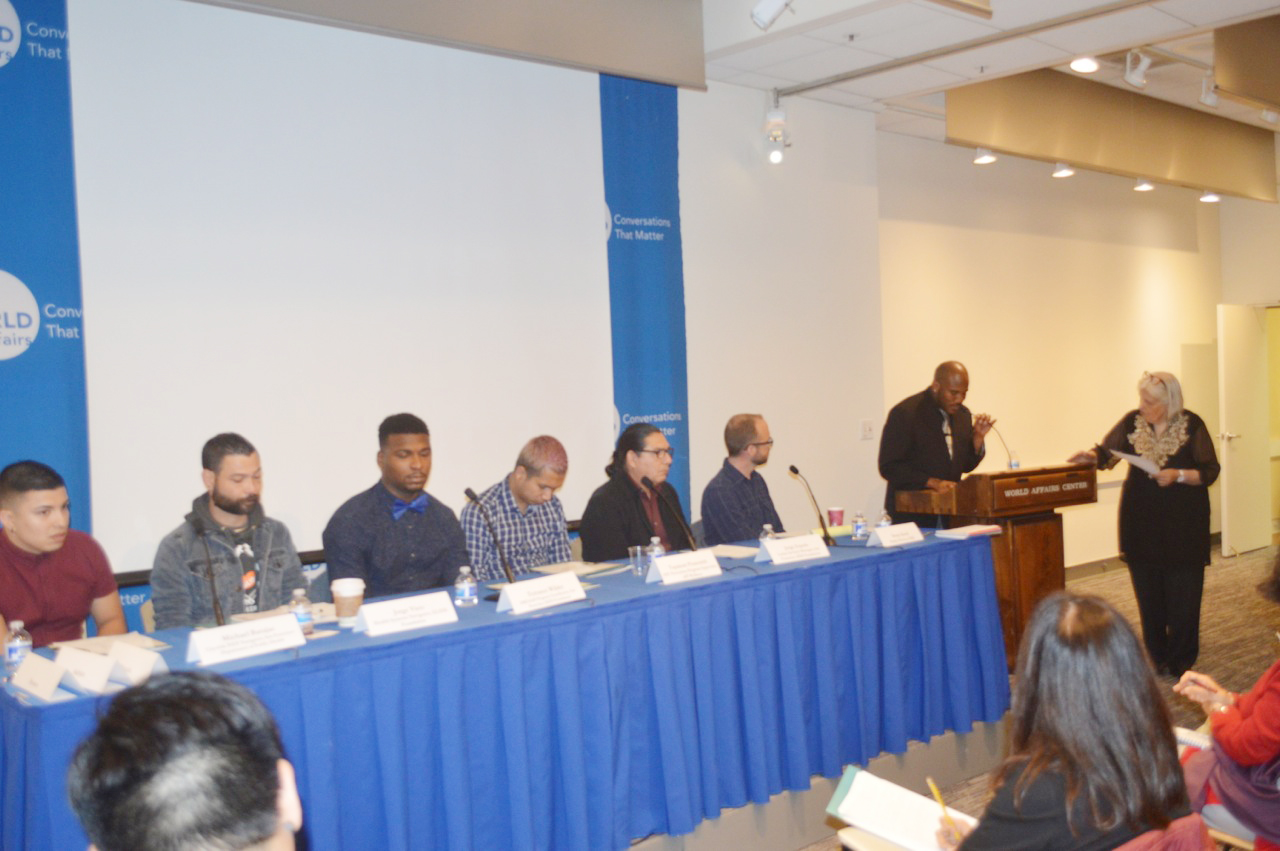by Fernando A. Torres
Meeting at the World Affairs Council in San Francisco on Oct. 31, leaders and public health experts warned this week that despite the marked decrease in deaths attributed to AIDS, the numbers continue to be disturbingly high in the African-American and Latino communities in relation to unprotected sexual conduct.
The experts met in a public forum organized by the New America Media organization and the San Francisco Department of Public Health.
Deaths from the virus are at an all time low – last year there were 223 cases in San Francisco. However, according to estimates from the Centers for Disease Control and Prevention, one in two African-American men and one in four homosexual Latino men will become infected with the virus during their lifetime.
The lack of communication and education, religion, lack of public funds, fear produced by the attacks of the federal government on immigrants and idiosyncrasy itself, are some of the problems cited by experts that affect the scope of prevention.
According to the director of Latino services of the foundation against AIDS, Jorge Zepeda, the typical advertising messages are intended for the white community. “The messages we hear do not resonate with our culture, linguistically speaking. The ads we see throughout the city are very sterile, they are more like ads that do not reach the heart and for Latinos and Latinas we like it with more texture with more flavor, with more seasonig,”said Zepeda.
The event also served to promote the use of the preventive pill known as PrEp (Pre-exposure prophylaxis). This appeared on the scene five years ago, however there is a wide ignorance of its existence within the Latino community. The pill can prevent HIV from entering and spreading throughout the body. If used as prescribed and consistently, the pill is effective in preventing the virus.
“PrEp is for everyone. It’s a pill, a drug that has been approved by the FDA (Food and Drug Aministration) that can help prevent HIV by more than 90 percent,” said Jorge Vieto, a public health worker at the Glide Memorial Foundation.
“But people do not have enough information. We are seeing that a majority of people do not know that PrEp is available. People who do know, do not know how to get it and do not know that can be covered by their insurance. If you have questions ask your doctor and if your doctor says no, find another doctor, “Vieto added.
Medicine is not cheap. A bottle of 30 pills PrEp costs $1,600. But according to Michael Barajas, a public health worker in San Francisco County, there are programs that help get it for free for a period of three to six months. These can be obtained regardless of the migratory status of the patients.
“With PrEp we can apply for a program of assistance from the company Gilead (Sciences) which is the one that manufactures the drug. They provide the medication for three to six months for free,” said Barajas who also reported that the advertising campaign initiated by the county two weeks ago is managing to reach the Latino community. They have already received more than 60 calls and the number is expected to increase in the coming days.
“I think that in general the Latino community is very conservative and has a lot of prejudices and stigmas in our minds because of our culture and how we have grown. Many are still afraid, Many still have stigma, prejudice and do not even want to talk about sexuality,” said Adrián Vargas, a 29-year-old Colombian man who a year ago was diagnosed with the Human Immunodeficiency Virus (HIV) that causes AIDS, the Acquired Immunodeficiency Syndrome.
“Let’s have this conversation, and not be afraid, let’s ask and also take care of ourselves using condoms, using all the services that exist in the city of San Francisco to get an HIV test, which is very easy. So it is to take care of ourselves a bit and as a community to have that conversation, be together and not judge, and support our other friends and people who are going through this,” Vargas concluded.
Despite the efforts of these organizations to educate on the subject, they exclude the issue of sexual promiscuity that affects the homosexual community, including the expiritual education that leads to monogamy, which can be factors that would help the prevention of this disease.
These issues, according to Zepeda, are not included as they would scare away those who practice homosexuality – and therefore open sex – because the plan is to avoid contagion without feeling guilty about their actions.
It was decided, says Zepeda, not to judge, but to respect the individual and not to break his sexual identity and sexual orientation, his exercise of his sexuality.
“When you put words like promiscuity, you’re saying you’re wrong, because you put weight on that word. But if you say, look, it does not matter what you are saying, I want to help you stay healthy … and more people are going to approach you, in contrast to say, do not do this because you are promiscuous. The people are going to go away. So what do you prefer, a community that is healthy or one where people get sick?”
(Marvin Ramírez contributed to this article).



